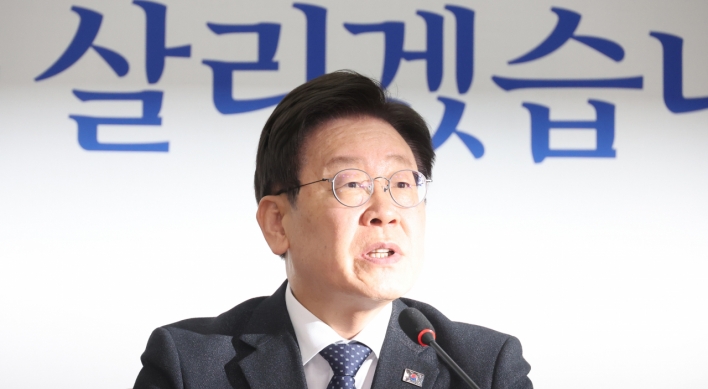Kolon Industries Inc., a leading South Korean textile maker, said Friday that it will fight U.S. Justice Department charges that it stole trade secrets, expressing deep regret over the legal action.
The prosecutor of the Eastern District of Virginia on Thursday charged Kolon and five company executives for theft of trade secrets regarding aramid fiber products of DuPont Co. and Japan’s Teijin Ltd. Aramid is a class of heat-resistant, strong synthetic fiber.
The Department of Justice’s allegations unfairly damaged Kolon’s reputation as a company that respects intellectual property rights and has developed its own aramid fiber product over 30 years, Kolon officials said.
“It is disturbing that the DOJ would bring charges that effectively assist DuPont in improperly extending its monopoly,” Kolon lawyer Jeff Randall was quoted as saying.
He pointed out that DuPont’s aramid fiber technology is the subject of hundreds of expired patents that have been in the public domain for dozens of years.
“Competitive products such as Kolon’s Heracron should be free to compete on the merits to the benefit of consumers in the United States and internationally,” he was further quoted as saying.
Kolon said it has conducted reserch and development since 1979 to develop aramid fibers used in aerospace and military applications. In 2005, the company commercialized its version of the synthetic fiber called Heracron.
A Kolon official told Yonhap News that his company will fight the charges in a court. The company said it expects a fair trial and believes that it will prevail in the courts. The Korean company also said it will strongly deal with a separate civil case with DuPont.
In August, a federal judge in Virginia banned Kolon from producing and selling any para-aramid fibers for 20 years.
Kolon said sales of Heracron generate up to about 90 billion won ($81 million) annually, though there were almost no sales in the United States.
By Park Min-young (claire@heraldcorp.com)
The prosecutor of the Eastern District of Virginia on Thursday charged Kolon and five company executives for theft of trade secrets regarding aramid fiber products of DuPont Co. and Japan’s Teijin Ltd. Aramid is a class of heat-resistant, strong synthetic fiber.
The Department of Justice’s allegations unfairly damaged Kolon’s reputation as a company that respects intellectual property rights and has developed its own aramid fiber product over 30 years, Kolon officials said.
“It is disturbing that the DOJ would bring charges that effectively assist DuPont in improperly extending its monopoly,” Kolon lawyer Jeff Randall was quoted as saying.
He pointed out that DuPont’s aramid fiber technology is the subject of hundreds of expired patents that have been in the public domain for dozens of years.
“Competitive products such as Kolon’s Heracron should be free to compete on the merits to the benefit of consumers in the United States and internationally,” he was further quoted as saying.
Kolon said it has conducted reserch and development since 1979 to develop aramid fibers used in aerospace and military applications. In 2005, the company commercialized its version of the synthetic fiber called Heracron.
A Kolon official told Yonhap News that his company will fight the charges in a court. The company said it expects a fair trial and believes that it will prevail in the courts. The Korean company also said it will strongly deal with a separate civil case with DuPont.
In August, a federal judge in Virginia banned Kolon from producing and selling any para-aramid fibers for 20 years.
Kolon said sales of Heracron generate up to about 90 billion won ($81 million) annually, though there were almost no sales in the United States.
By Park Min-young (claire@heraldcorp.com)
-
Articles by Korea Herald



![[Herald Interview] 'Amid aging population, Korea to invite more young professionals from overseas'](http://res.heraldm.com/phpwas/restmb_idxmake.php?idx=644&simg=/content/image/2024/04/24/20240424050844_0.jpg&u=20240424200058)







![[Hello India] Hyundai Motor vows to boost 'clean mobility' in India](http://res.heraldm.com/phpwas/restmb_idxmake.php?idx=644&simg=/content/image/2024/04/25/20240425050672_0.jpg&u=)






![[Today’s K-pop] NewJeans' single teasers release amid intrigue](http://res.heraldm.com/phpwas/restmb_idxmake.php?idx=642&simg=/content/image/2024/04/26/20240426050575_0.jpg&u=)